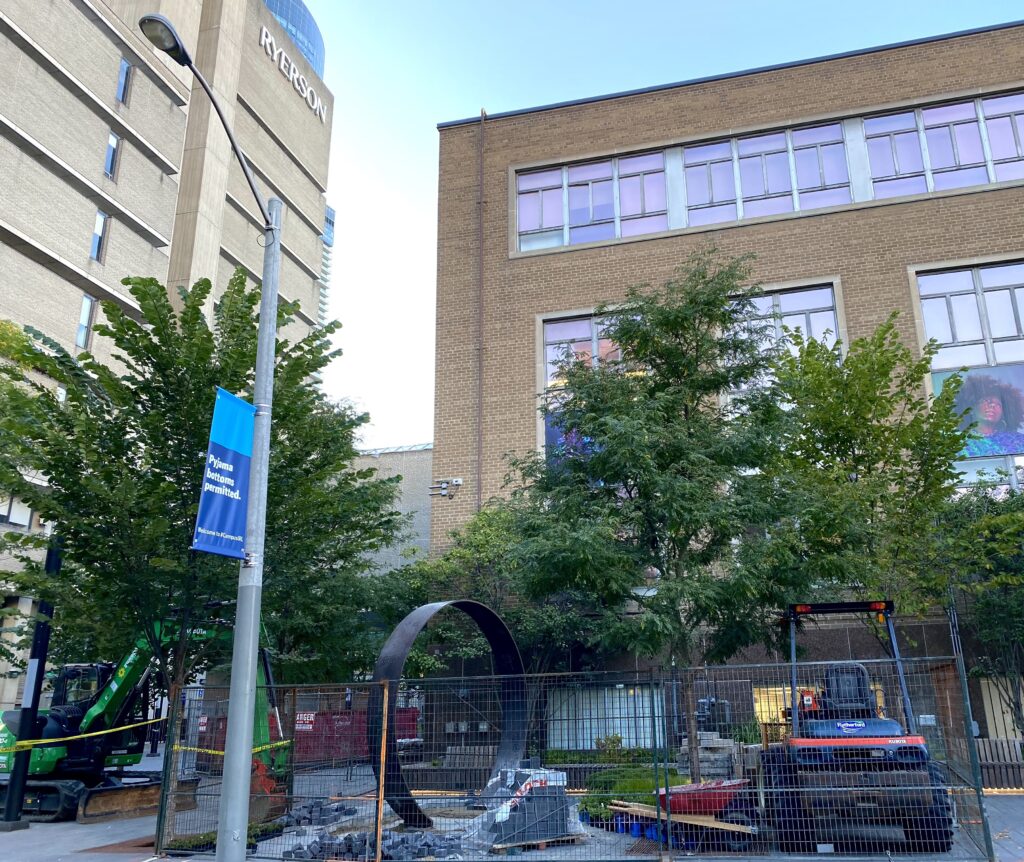
Ryerson University joined other post-secondary institutions across the country in honouring its fifth Orange Shirt Day on Thursday.
It also marks the first time Sept. 30 was recognized officially as a statutory holiday by the federal government. It has been renamed the National Day for Truth and Reconciliation.
The holiday was put in place to commemorate the families and survivors of Canada’s residential school system, which took an unknown number of children’s lives from the 1800s up until the last school closed in 1996.
The university held a series of events to acknowledge the holiday, including a session with non-Indigenous faculty from the Centre for Excellence in Learning and Teaching. The session shared resources for educators to create learning opportunities for students at the university related to the Truth and Reconciliation Commission’s calls to action.
A virtual opening event including Indigenous community members and university leaders was hosted on Sept. 29 to raise awareness about residential schools. The event also included a virtual tour of Shingwauk Residential Schools Centre, a former residential school turned into a research centre in Sault Ste. Marie, Ont.
All events were organized by Aboriginal Initiatives and the Office of the Vice-President, Equity and Community Inclusion, in collaboration with the Aboriginal Education Council, Indigenous Students’ Association and other Ryerson departments.
This year’s day of reflection coincides with the recent reckoning of Egerton Ryerson’s legacy and involvement with the residential school system, which sparked the ongoing renaming process, approved as part of the recommendations made by the Standing Strong (Mash Koh Wee Kah Pooh Win) Task Force in the summer.
Although a new art installation was placed on campus as part of Ryerson’s commitment to increasing Indigenous visibility, the university has not yet announced a detailed plan for how it will continue to educate the non-Indigenous community on issues affecting the Indigenous community beyond its education week.
For Indigenous students and faculty coping with the intergenerational effects of residential schools, the Indian Residential Schools Crisis Line can be contacted at 1-866-925-4419 and is available 24 hours a day, seven days a week.
Aboriginal Initiatives, Ryerson Aboriginal Student Services and the Aboriginal Education Council are offering beading and group talking circles to the Indigenous community online and in-person.
For non-Indigenous students, here are other ways to continue to support the Indigenous community throughout the year.
Support Indigenous artists
Nanook Gordon is an Inuvialuk artist living in Toronto who designed an orange shirt which they sell online to support their initiative, Toronto Indigenous Harm Reduction, that helps Indigenous people without housing.
Tyler Tabobondung Rushnell is an Anishinaabe artist from the Wasauksing First Nation in Parry Sound, Ont., who makes acrylic painting and digital artwork murals that blend woodland style, pop culture references and nature.
Mobilize is an Indigenous streetwear collection that was created by Dusty LeGrande, a Cree artist from Edmonton using fashion to highlight the resiliency of Indigenous peoples.
Indigenous Notions is an online store that uses the proceeds from orange shirts designed by Inuk-Caribbean artist Emma Forbes to support The Orange Shirt Society and Inuit Tapiriit Kanatami, an Inuit organization that advocates for the rights and interests of Inuit communities in Canada.
Mocs n More is an Indigenous footwear store based in Calgary that also highlights Indigenous artwork and apparel.
Moki Works is an Indigenous-owned streetwear and lifestyle brand that raises awareness of Indigenous issues and culture.
Donating
You can donate directly to the Indian Residential School Survivors Society or Orange Shirt Society that supports survivors of residential schools. Other organizations include Reconciliation Canada and Legacy of Hope Foundation.
